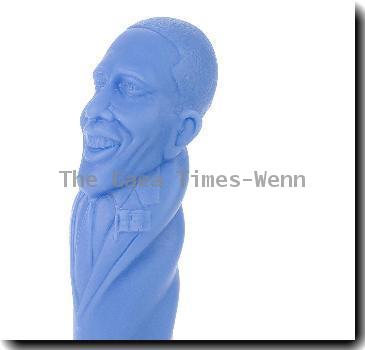Pa. Senate race underscores Democratic troubles with independent voters in midterm vote
By Liz Sidoti, APMonday, July 19, 2010
Independents crucial to Dems’ election prospects
MEDIA, Pa. — Democrat Joe Sestak — a son of the Philadelphia suburbs — needs the independent voters in his backyard as he campaigns for a Senate seat in a swing state that may tilt Republican this year.
Independents have been turning away from President Barack Obama and the Democratic Party, frustrated with the economic downturn and administration initiatives, even in Pennsylvania where Obama won by double-digits two years ago. Sestak, a two-term congressman, has his work cut out for him.
“To vote for any of them right now, I’m not really sure I could. It’s too early to say,” says Tori Fisher, 45, an artist selling handmade jewelry at a picnic table down the street from Sestak’s bustling campaign headquarters.
Fisher backed Obama two years ago and Democrats in 2006 but says “all of my friends feel frustrated” with the president’s policies. “All of them could be doing a better job,” she said of the Democrats controlling the White House and Congress.
On a nearby park bench, Albert Davis, 63, calls his previous support for Obama unfortunate. He faults the president and his party for their handling of the troubled economy, the soaring budget deficit and the new health care law.
“I thought he could straighten this country out,” he says. “I may have been wrong.”
Davis doesn’t know how he’ll vote this fall — “if I vote.”
Although Democrats outnumber Republicans by about 1.2 million in Pennsylvania, independent voters, especially those in the so-called collar counties around Philadelphia, have proved decisive in elections in this swing state. They are seen as key to victory in the competitive Senate race between Republican Pat Toomey, a former congressman who once headed the anti-tax Club for Growth, and Sestak, who defeated Sen. Arlen Specter, a former Republican who switched parties to run in the May 18 Democratic primary.
A recent poll showed Toomey with a clear advantage among independent voters, and the same Quinnipiac University survey showed Obama’s approval under 50 percent in the state. The president has lost considerable ground among Pennsylvania independents.
In 2006 and 2008, independents frustrated with then-President George W. Bush and the war in Iraq pushed Democrats to House and Senate wins across the country. Among the winners was a retired admiral and political novice named Sestak who captured a district that encompasses the one-time factory town of Conshohocken and the wealthy enclaves of the Main Line. This year, voters unaligned with a political party are disgruntled with the direction of the country, the Democratic-controlled Congress and Obama — and appear poised to punish the party in power.
Nationwide, a recent Pew Research Center survey showed Republicans with an edge over Democrats — 44 percent to 36 percent — among independents. At this point in 2006, independents backed Democrats 47 percent to 32 percent.
With independents so critical to victory, each Senate candidate is casting the other as an extreme ideologue out-of-step with voters on economic issues.
“Pat Toomey, someone I like, will always side with Wall Street and big oil … but I’ll stand up and fight for the working family and what they need,” says Sestak, painting Toomey as far too conservative for the state. Sestak regularly hammers the former Republican congressman on his support for drilling in Lake Erie and his House votes on measures that included tax breaks for corporations.
Sen. Robert Menendez of New Jersey, chairman of the Senate committee charged with electing Democrats, tags Toomey as “a former Wall Street executive who made his money trading derivatives” after a House stint in which he “not only racked up an extreme right-wing voting record, but he also championed freewheeling Wall Street practices.”
Toomey, in turn, assails Sestak for voting for the Wall Street bailout, the economic stimulus, the health care law and cap-and-trade legislation that critics deride as an energy tax.
“That’s liberal,” says Toomey. “He is in lockstep with Nancy Pelosi and her agenda.”
Republicans frequently link Sestak with the House speaker from San Francisco and argue that Sestak does nothing more than toe the Democratic line. Says Texas Sen. John Cornyn, chairman of the National Senatorial Campaign Committee: “If voters give Sestak a promotion this November, they can expect more of the same from the Washington Democrats’ tax-and-spend agenda — lost jobs, higher taxes and bigger government.”
Freed from a GOP primary this year, Toomey has amassed far more money. He raised $3.1 million in the most recent fundraising quarter and ended with $4.65 million available. He has four offices open, is running TV ads and is getting help from deep-pocketed groups like the U.S. Chamber of Commerce.
Sestak emerged from his Democratic primary with Specter all but broke; he raised $1.95 million last quarter and had about $2 million on hand. He has yet to run TV ads but has 10 campaign offices.
Three months out, polls show the Senate race a dead heat.
Stephen Bouikidis, a founder of the grass-roots organization Independent Pennsylvanians, says it’s unfulfilled promises of bipartisanship that influence the state’s 1 million independents. “We are very interested in candidates who want to reform. But what we won’t respond to is partisanship,” he says.
If independents side with Republicans this fall in Pennsylvania, Democrats could lose both a Senate seat and a governorship in an important presidential state two years before Obama is expected to seek re-election.
There’s little disagreement over what’s on the minds of the state’s electorate, independents included.
“They want to see government get their fiscal house in order,” says Dan Onorato, the chief executive of Allegheny County and the Democrat running for governor. And his GOP opponent, Attorney General Tom Corbett, says: “They’re concerned about taxes, they’re concerned about spending.”
Tags: Barack Obama, Government Regulations, Industry Regulation, Media, North America, Pennsylvania, Philadelphia, Political Organizations, Political Parties, Senate Elections, United States


